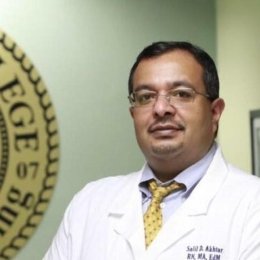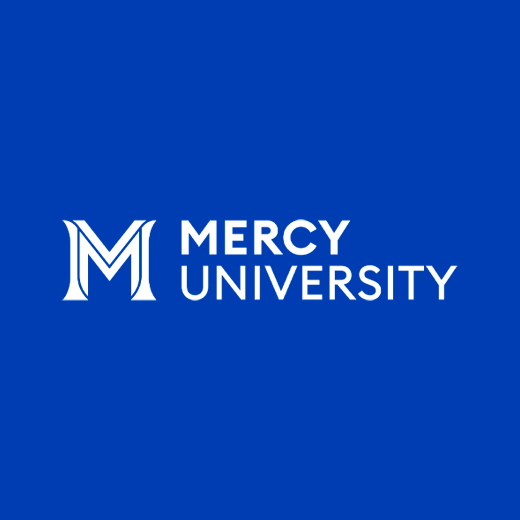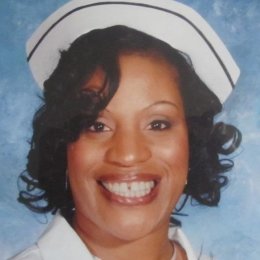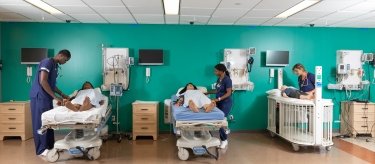
RN to B.S. Degree Completion Program | Nursing
- 120 Credits
- School of Nursing
- Online
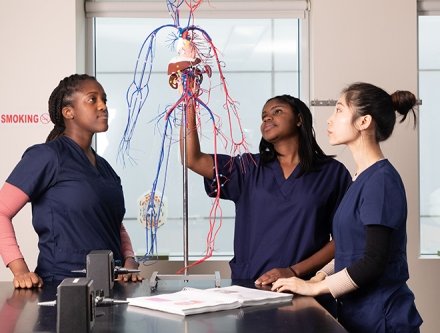
Nursing RN to B.S. - Completion Program Overview
Fully online option plus flexible schedule available for working RN's. Advance your career in nursing with a bachelor's degree.
The Mercy University bachelor of science degree in nursing is designed for registered nurses who have an associate's degree or who have graduated from a diploma program in nursing, and are planning to return to school for a bachelor's degree. The program offered is RN - B.S. online only (tuition is reduced).
RN-B.S. Fully Online Completion Program
Students admitted to the RN-B.S. fully online completion program are eligible for reduced tuition.
All courses must be taken online.
RN-B.S. Fully Online Program
Fully Online RN to B.S. Program Tuition: $508.00 per credit
Registration Fees
| 12 credits or more | $450.00 per term |
| Less than 12 credits | $225.00 per term |
| RN to B.S. program fee | $62.50 per term |
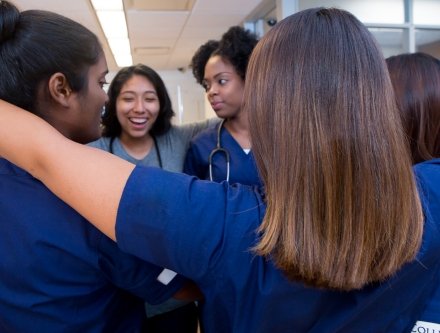
The Nursing Program at Mercy University
Just listen and watch as students in our nursing program describe their education: personal, cutting edge, and preparing them for success!
Want More Info?
We'd like to hear from you! Get more information.
Frequently Asked Questions
Yes. Mercy University offers a wide variety of financial aid programs, both economically need based and academic. In addition, information regarding other financial aid opportunities can be found at the following links: Medi-Smart: Nursing Career Advancement, Tylenol Scholarships, AACN - RN AACN members, 3.0gpa, National Black Nurses Association, National Hispanic Nurses Association, Minority Nurse, Respiratory Nursing Scholarship, National Student Nurse Association - Up to $2,500, Greater New York Hospital Recruiters Vida Samuel New York University College of Nursing 246 Greene Street New York, NY 10003, Nursing Excellence Fellowship Grant, Emergency Nurses Association, Scholarship for Nursing Educators.
Full-time students can complete the 120-credit program in 3 - 5 years.
Students are able to apply with the Mercy University Undergrad Application (mercy.edu/apply-now), Common App (https://www.commonapp.org/school/mercy-college) or NursingCAS (www.nursingcas.org).
Full-time: 1 - 2 years; Part-Time: 2 - 3 years. Completion timeframe depends upon the number of credits transferred in and the number of courses taken each semester.
It is recommended that you contact the nursing program at (914) 674-7865 after acceptance into the program. Faculty will be available for academic advisement.
Yes, faculty are ready to assist students with questions.
Up to 75 credits from a two-year institution. Up to 90 from a four-year institution. Up to 90 credits combined, however the credits may not exceed 75 credits from any combination of two-year institutions as they apply to your chosen degree. In addition you may only transfer in two courses of upper-level nursing courses (six credits) to apply to the major/specialization.
The RN - B.S. program is designed for registered nurses who already have an associated degree in nursing or a diploma in nursing. If you do not have a nursing degree, you can apply to one of the following nursing schools Mercy University has an agreement with: Borough of Manhattan Community College: (212) 220-1265; Bronx Community College: (718) 289-5425; Cochran School of Nursing: (914) 964-4296; Montefiore School of Nursing: (914) 361-6221; Dutchess Community College: (845) 431-8000; Helene Fuld School of Nursing: (212) 423-2700; LaGuardia Community College: (718) 482-5782; Kingsborough Community College: (718) 368-5522; Orange Community College: (845) 341-4107; Queensborough Community College: (718) 631-6262; Westchester Community College (914) 606-6600. After obtaining an associate's degree in nursing, passing the NCLEX and obtaining license as an RN, you can apply to the RN to B.S. program.
Students are required to complete 135 hours of clinical in community health. The location is coordinated by faculty and the student. Out of area students may be able to complete their requirement at a location near their home.
Miriam Ford, Interim Program Director, mford@mercy.edu, (914) 674-7860 or Jennifer Garvey, Administrative Assistant, jgarvey1@mercy.edu, (914) 674-7865.
Program Details & Curriculum
General Education Requirements: 60 Credits
Lower Division Nursing - Given for AS degree or Diploma degree in Nursing: 30 Credits
Major Concentration: Upper Division Nursing: 30 Credits
Total: 120 Credits
Eligibility for Admission to Nursing RN-B.S. Programs
- An Associate Degree in Nursing from an accredited nursing program or a Diploma in Nursing
- Students who completed their nursing degree outside of the U.S. must complete a WES evaluation
- Passed the NCLEX licensure exam
- A valid state license to practice as a registered nurse in the U.S.
- A GPA of 2.75
- Student will be considered for admission with GPAs 2.5 - 2.70
- Student will meet the Nursing Program Undergraduate Coordinator or the Program Co-Director
The baccalaureate degree program in nursing and master's degree program in nursing at Mercy University is accredited by the Commission on Collegiate Nursing Education, 655 K Street NW, Suite 750, Washington, DC 20001, 202-887-6791.
The baccalaureate degree in nursing at Mercy University is accredited by the New York Board of Regents, New York State Education Department, 89 Washington Avenue, Board of Regents, Room 110 EB, Albany, New York 12234.
The B.S. in nursing program is designed to prepare students to:
- Be accountable for professional nursing care
- Collaborate in leadership roles within the changing health care delivery system
- Participate in the process of inquiry
- Prepare for graduate study
- Integrate concepts from liberal arts and sciences as the basis for nursing education and the practice of professional nursing (PO I)
- Demonstrate leadership strategies that promote quality improvement, client safety, and organizational effectiveness that promotes health (PO II)
- Evaluate the levels of evidence that guide evidence based on practice in professional nursing (PO III)
- Explore ethical management of data, information, knowledge, and technology to facilitate professional nursing care (PO IV)
- Investigate healthcare policies and practices, finances, costs, and regulations that influence professional nursing and the general population while promoting advocacy and social justice particularly for the vulnerable (PO V)
- Examine the implications of interprofessional communication and collaboration in improving health outcomes (PO VI)
- Examine the impact of clinical prevention on health promotion and disease prevention on population health (PO VII)
- Integrate the core values characteristic of professional nursing (PO VIII)
- Integrate and apply knowledge, skills, and attitudes that lead to the improvement in health outcomes while recognizing the diversity of culture, spirituality, ethnicity, socio-economic status, gender, and sexual orientation of all clients (PO IX)
Download a copy of the sequence map for:
ARCHIVE
- 2024 - 2025 RN to B.S. Nursing
- 2023 - 2024 RN to B.S. Nursing
- 2022 - 2023 RN to B.S. Nursing
- 2021 - 2022 RN to B.S. Nursing
2020 - 2021 RN to B.S. Nursing
Full-Time Faculty
Kathleen Apollon-Ferron
Marilyn Jane Campbell
- BX 4141, MH 270
- mcampbell10@mercy.edu
- (718) 678-8533

